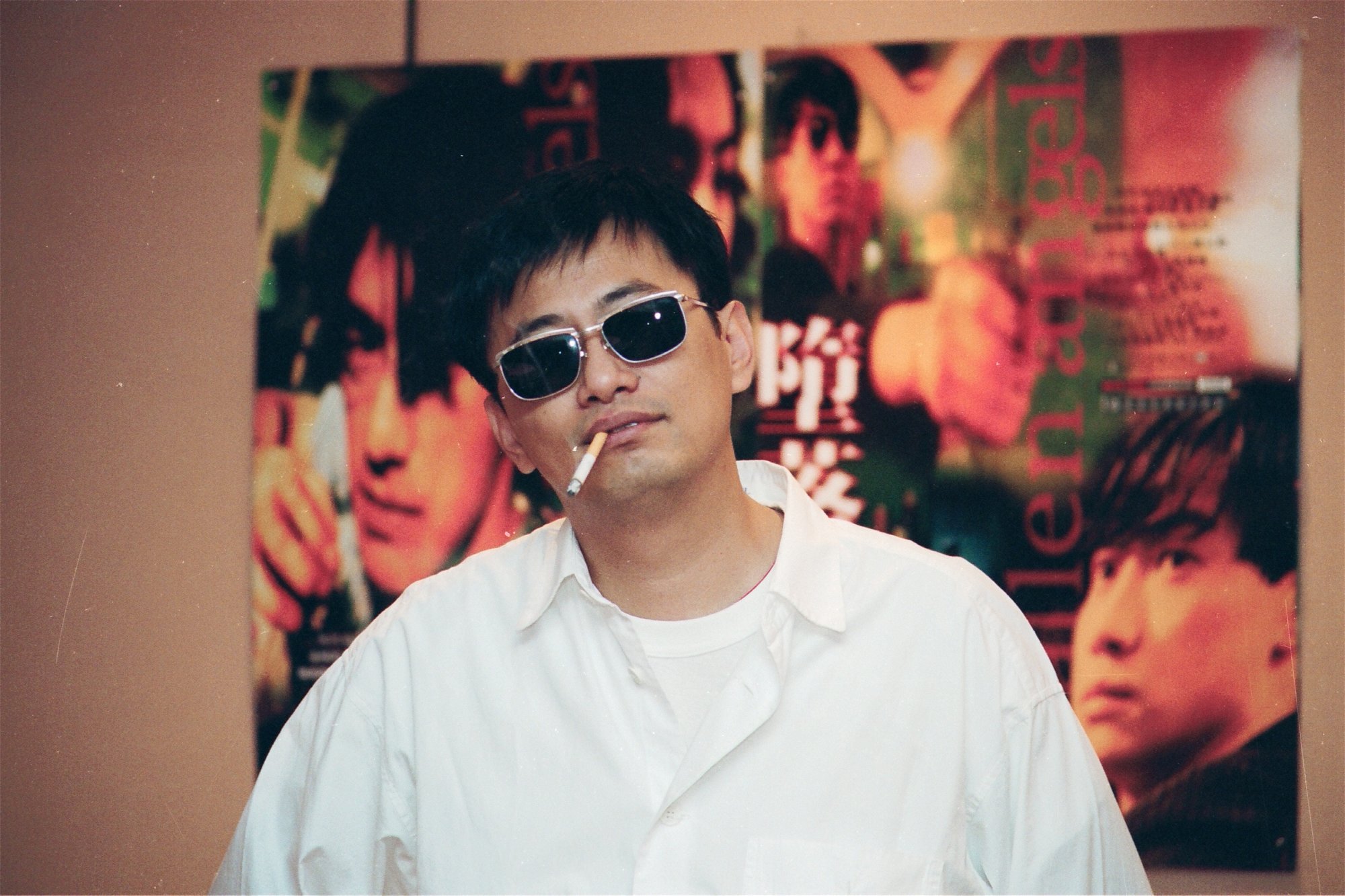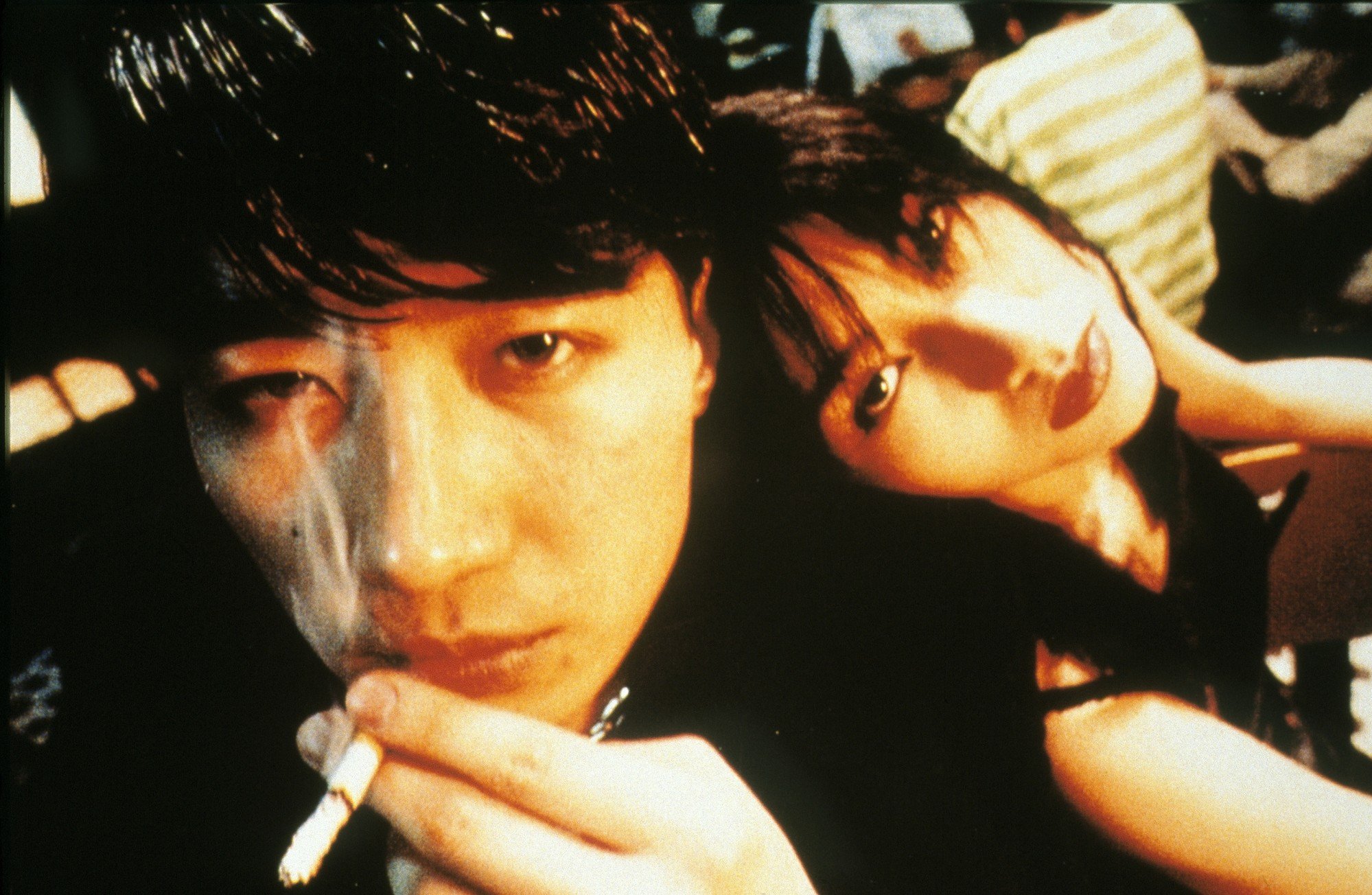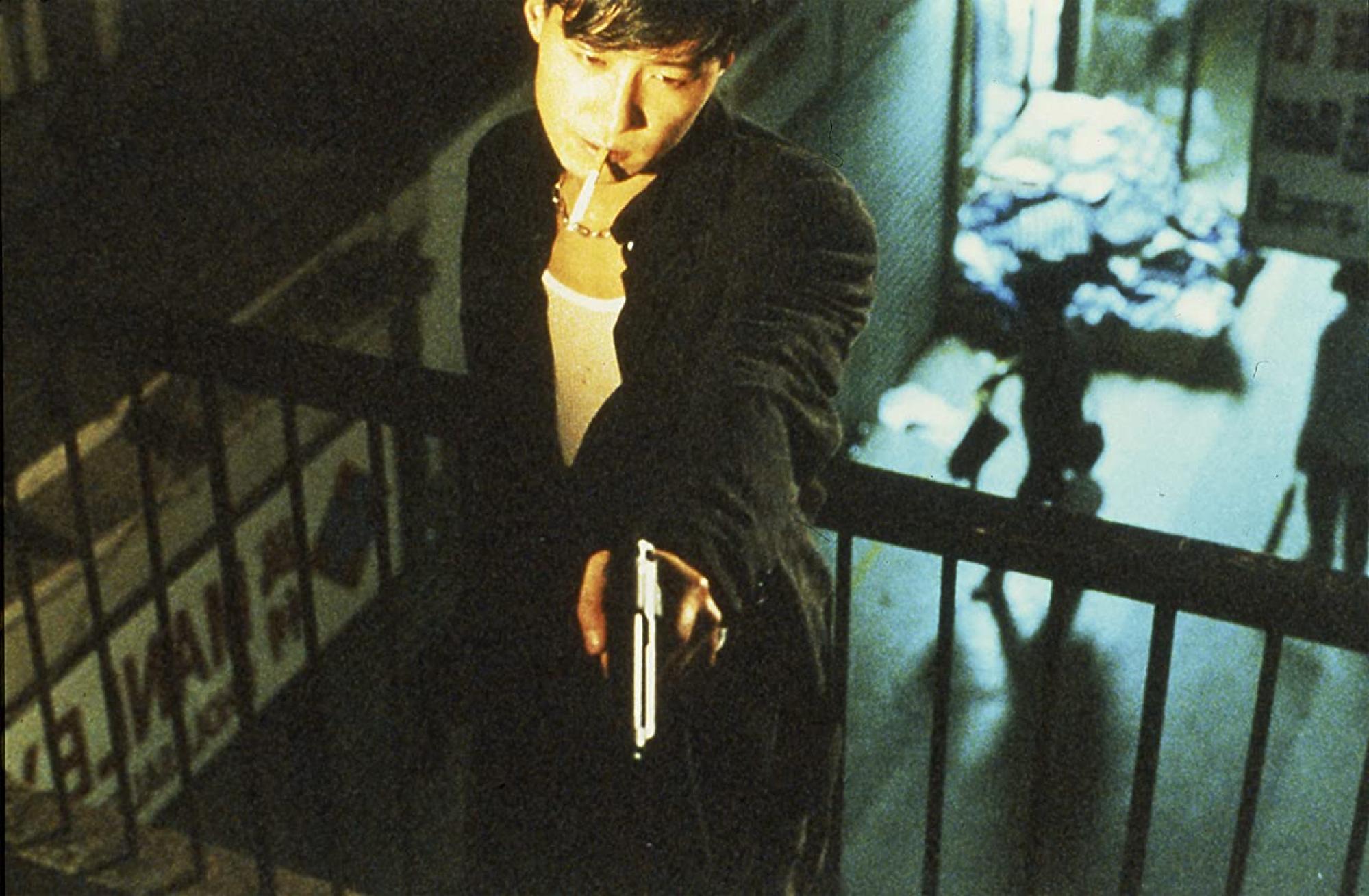
Fallen Angels: Wong Kar-wai on casting Leon Lai, Michele Reis, Charlie Yeung and Karen Mok against type in 1995 film
- The auteur Hong Kong filmmaker cast Leon Lai as a hit man, and Michele Reis’ and Karen Mok’s characters were the opposite of their normal girl-next-door roles
- The idea that became Fallen Angels was originally intended to be part of Chungking Express, but Wong decided it could stand alone
Canto-pop king Leon Lai Ming also played heavily against type as an introspective hit-man, and Takeshi Kaneshiro played a mute.
This interview with Wong was conducted by this journalist in 1995, just before the local release of Fallen Angels.
Wasn’t Fallen Angels originally conceived as a sequel to Chungking Express?
Chungking Express was actually conceived to have three parts, and the third part was what I called ‘The Killer’.
But after I finished filming the first two parts, I decided it would be too long, so I saved the third idea for Fallen Angels.
In the end, I chose not to make it a sequel to Chungking Express, although I wanted to keep the same spirit and energy.
Why Peter Chan’s early films felt like a breath of fresh air in Hong Kong
The scene with Charlie Yeung and Takeshi Kaneshiro in the Midnight Express cafe is a direct reference to your previous film. Did that come from your original Chungking Express idea?
It’s actually a joke. When we were planning the last scene, we tried to think of a good location, but we couldn’t find one. So we thought, why not go back to the Midnight Express and shoot there? We had a good relationship with the owner.
After that we started thinking about what job Charlie’s character should have taken – and why not a flight attendant?

Once again you are looking at the theme of the difficulties of communication in an urban setting.
I always try to emphasise communication between people in my films. Take Ashes of Time – there are lots of people who don’t want to communicate in case they are rejected.
In Fallen Angels, Michele and Leon are like the characters in Ashes of Time as they don’t trust anyone. But Takeshi and Charlie are like those in Chungking Express: they want to communicate, but they have no one to communicate with.

These problems exist in urban life everywhere. Lack of communication is one of the problems of daily life.
It’s interesting that you’re using Michele Reis and Charlie Yeung, as they are not obvious choices for the roles. Which of their films inspired your choices?
Actually, I’ve never seen their other performances. I chose them from my first impressions of meeting them. After meeting them, I decided to design their characters in a way I felt suited them.
Takeshi [Kaneshiro] likes to improvise ... He made suggestions for what he should do. He would give me four choices and I would choose one. But sometimes he would do number five!
Their characters are so far away from the more innocent roles they normally play.
I think this film has some of the real character of Michele in it. Michele knows how to protect herself, how to keep a distance from people.
As for Charlie, I met her before she became a star, a teen idol. I feel that she is a very professional person, and I remember she said she wanted to become a lawyer after her performing career.

She is so rational that sometimes she suppresses her own feelings. You can’t ever predict what she is feeling – sometimes she will hang out with you for a while, then she will disappear. I think Charlie’s own personality informs her character in Fallen Angels.
Takeshi Kaneshiro’s performance is very physical, he’s always throwing himself around. How did you direct him?
Takeshi likes to improvise and use his imagination. If you give him a lot of space, he will draw on his own character. He made suggestions for what he should do. He would give me four choices and I would choose one. But sometimes he would do number five!
How did you get Michele Reis to play so far against type? Did she object to the more sexual scenes?
She’s played a lot of roles as a ‘beauty’ in her career. Now she feels like she is ready to play more challenging roles. She didn’t object to any of my ideas. I gave her the details of the script, she thought about it, and decided to go with it. She was psychologically prepared for the role.

It’s a surprising role for Leon Lai, too. How did you convince him to take it on?
I think Leon is a bit like Michele in real life, in the sense that he doesn’t really trust anyone. Actually, he thought he was very suitable to play a hitman, he felt he could understand that kind of psychology.
Normally in films, Leon plays to the crowd like an idol. But here, he really wanted to do something different and be much more low-key than in his previous films.
The only thing that I have in common with [Quentin] Tarantino is that we both love making movies
You use a wide-angle lens in small spaces to make them look larger. What’s behind that unusual decision?
We shot the final cafe scene first, and we used a wide-angle lens to make it look bigger.
I liked the way this changed the way we perceive space. People who were close in reality suddenly looked like they were far apart. Also, the distortion that happened to the faces made them look twisted, and I felt this illustrated the psychology of the characters.

So after the first day, I decided to use a wide-angle lens for the whole film.
On a big screen, it’s very difficult to watch close-ups shot in widescreen – that’s why you don’t see close-ups in films like Lawrence of Arabia …
I wanted to show it in widescreen to start with, as it looked so good on the Steenbeck [editing machine] when I was editing. But I realised it would give the audience a headache if they watched it in theatres in a widescreen format. Everything is squeezed together, so the perspective becomes distorted.
Happy Together at 25: Wong Kar-wai on his classic 1997 gay movie
Although I felt it looked good visually – it was very interesting! – the perspective makes you feel dizzy. A little movement can make your head spin. You couldn’t watch a whole film like that.
I don’t think that my films have a direct relationship to those made by Godard. Of course, everyone has been influenced by him, and other great directors, so I’m not denying that there are references to Godard in my work. But I don’t agree with the way the critics directly relate my films to his films.

As for Tarantino, I don’t agree with the comparison. In Taiwan, critics even called Fallen Angels “Pulp Fiction in Hong Kong” – that is totally not true! The only thing that I have in common with Tarantino is that we both love making movies.
What’s your next project?
I’m thinking about making a musical in Beijing, with Faye Wong and Takeshi Kaneshiro. It will be a rock’ n ’roll musical, with Chinese underground rock music.
In this regular feature series on the best of Hong Kong cinema, we examine the legacy of classic films, re-evaluate the careers of its greatest stars, and revisit some of the lesser-known aspects of the beloved industry.
